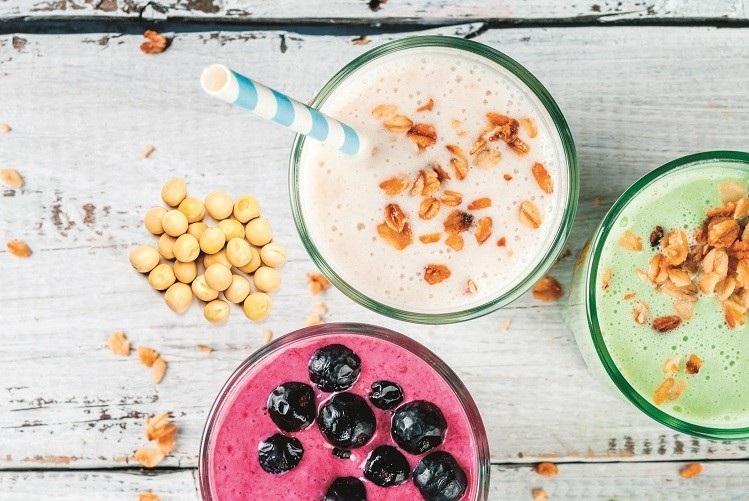
Plant-Based Protein
Introduction
In recent years, plant-based diets have gained significant popularity for their health benefits, ethical considerations, and environmental sustainability. As more people turn to plant-based nutrition, the demand for high-quality plant-based protein sources has surged. Among these, plant-based protein shakes have emerged as a convenient and effective way to meet daily protein requirements. This article explores the benefits, sources, and considerations for incorporating plant-based protein shakes into your diet. If you want to know more about plant based protein shake visit here.
Benefits of Plant-Based Protein Shakes
- Nutritional Value: Plant-based protein shakes are rich in essential nutrients, including vitamins, minerals, and antioxidants. They provide a balanced source of protein that supports muscle repair, immune function, and overall health.
- Digestibility and Absorption: Many plant-based protein sources are easily digestible and less likely to cause gastrointestinal discomfort compared to some animal-based proteins. Ingredients like pea protein and brown rice protein are known for their high digestibility.
- Weight Management: Protein shakes can help in weight management by promoting satiety and reducing overall calorie intake. The fiber content in many plant-based protein powders also aids in digestion and helps maintain a feeling of fullness.
- Allergen-Friendly: Plant-based protein shakes are often free from common allergens such as dairy, soy, and gluten, making them suitable for individuals with food sensitivities or allergies.
- Ethical and Environmental Considerations: Choosing plant-based proteins supports ethical dietary choices by reducing reliance on animal products. Additionally, plant-based proteins have a lower environmental footprint, requiring less water and land resources and producing fewer greenhouse gases.
Common Sources of Plant-Based Proteins
Plant-based protein shakes can be made from a variety of protein-rich plants. Some of the most common sources include:
- Pea Protein: Derived from yellow split peas, pea protein is highly digestible and rich in essential amino acids, particularly lysine. It is an excellent choice for muscle building and repair.
- Hemp Protein: Made from ground hemp seeds, this protein is a complete protein, meaning it contains all nine essential amino acids. It is also rich in omega-3 fatty acids, which support heart health.
- Brown Rice Protein: Brown rice protein is hypoallergenic and easy to digest. While it is not a complete protein on its own, it can be combined with other protein sources to provide a full amino acid profile.
- Soy Protein: Soy protein is one of the most common plant-based proteins and is considered a complete protein. It is well-researched and has been shown to support muscle growth and overall health.
- Pumpkin Seed Protein: Rich in magnesium, zinc, and iron, pumpkin seed protein is another excellent plant-based option. It also contains a good amount of healthy fats and fiber.
- Quinoa Protein: Quinoa is a complete protein and is packed with nutrients, including fiber, iron, and magnesium. Quinoa protein powder is derived from the seeds of the quinoa plant.
How to Incorporate Plant-Based Protein Shakes into Your Diet
Incorporating plant-based protein shakes into your diet can be both simple and delicious. Here are some tips and recipes to help you get started:
1. Basic Protein Shake Recipe
- 1 scoop of plant-based protein powder
- 1 cup of almond milk (or any plant-based milk)
- 1 banana
- 1 tablespoon of almond butter
- 1 teaspoon of chia seeds
- Blend all ingredients until smooth. Enjoy as a post-workout recovery drink or a meal replacement.
2. Green Protein Smoothie
- 1 scoop of pea protein powder
- 1 cup of spinach or kale
- 1/2 avocado
- 1 cup of coconut water
- 1 tablespoon of flaxseeds
- 1/2 cup of frozen mango
- Blend until creamy for a nutrient-packed start to your day.
3. Berry Antioxidant Shake
- 1 scoop of hemp protein powder
- 1 cup of mixed berries (strawberries, blueberries, raspberries)
- 1 tablespoon of hemp seeds
- 1 cup of oat milk
- 1 teaspoon of acai powder
- Blend until smooth for an antioxidant-rich snack.
Considerations When Choosing a Plant-Based Protein Powder
When selecting a plant-based protein powder, consider the following factors:
- Protein Content: Check the protein content per serving to ensure it meets your dietary needs. Most plant-based protein powders offer between 15-25 grams of protein per serving.
- Amino Acid Profile: Look for protein powders that provide a complete amino acid profile, or combine different plant proteins to achieve this.
- Ingredients: Choose products with minimal and natural ingredients. Avoid powders with added sugars, artificial flavors, and fillers.
- Certifications: Opt for certified organic, non-GMO, and third-party tested protein powders to ensure quality and purity.
- Taste and Texture: Taste and texture can vary widely among plant-based proteins. It may take some experimentation to find a powder that suits your preferences.
Conclusion
Plant-based protein shakes are a versatile, nutritious, and eco-friendly option for anyone looking to increase their protein intake. With a variety of plant-based protein sources available, you can find a product that meets your dietary needs and preferences. By incorporating plant-based protein shakes into your daily routine, you can support your health, fitness goals, and the planet. Whether you are a dedicated vegan, have dietary restrictions, or simply want to make more sustainable choices, plant-based protein shakes offer a delicious and convenient solution.






